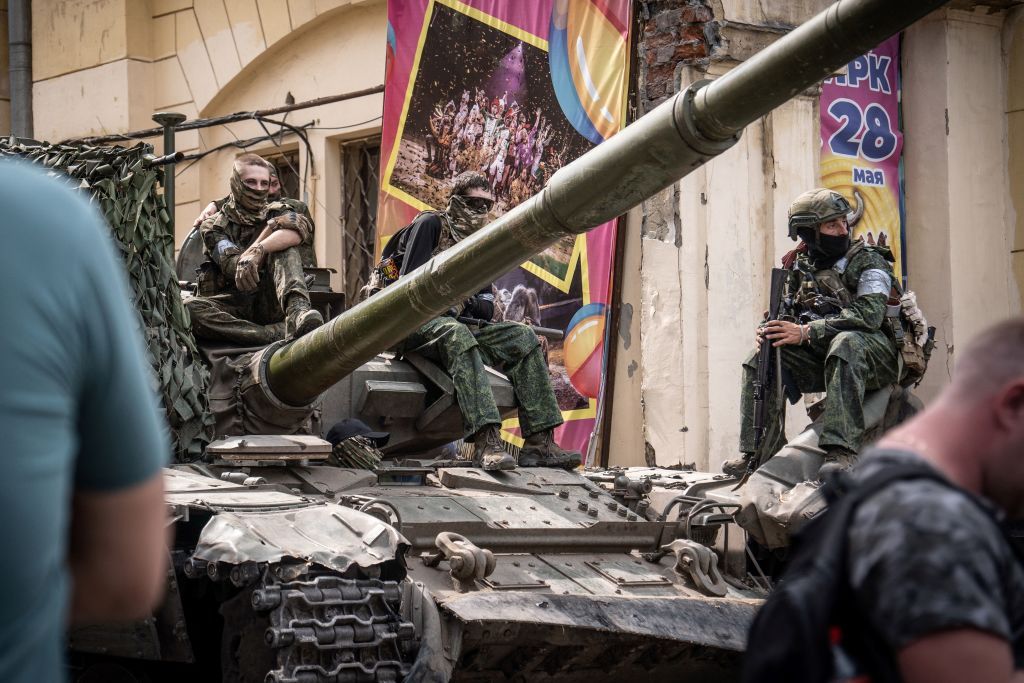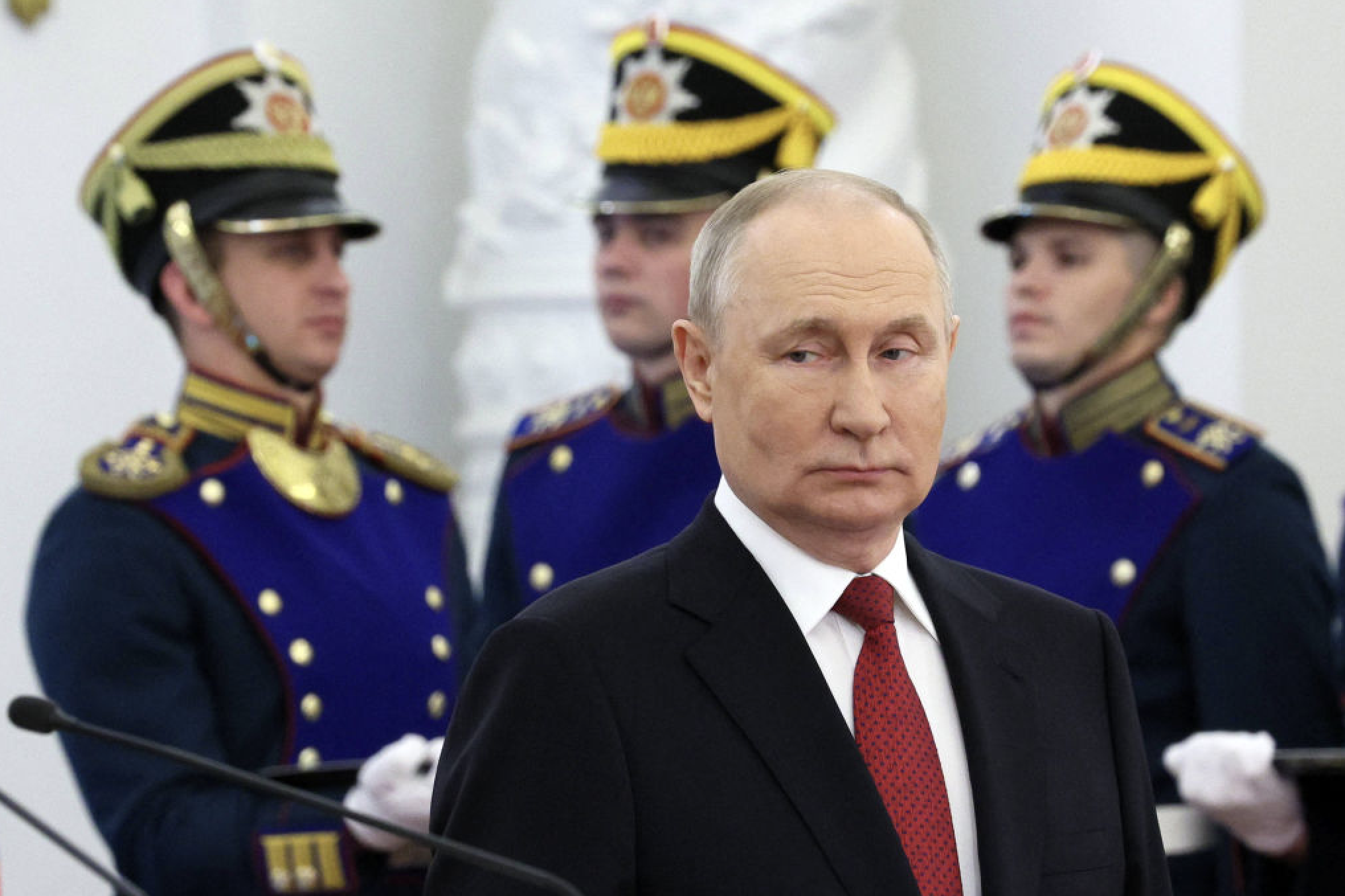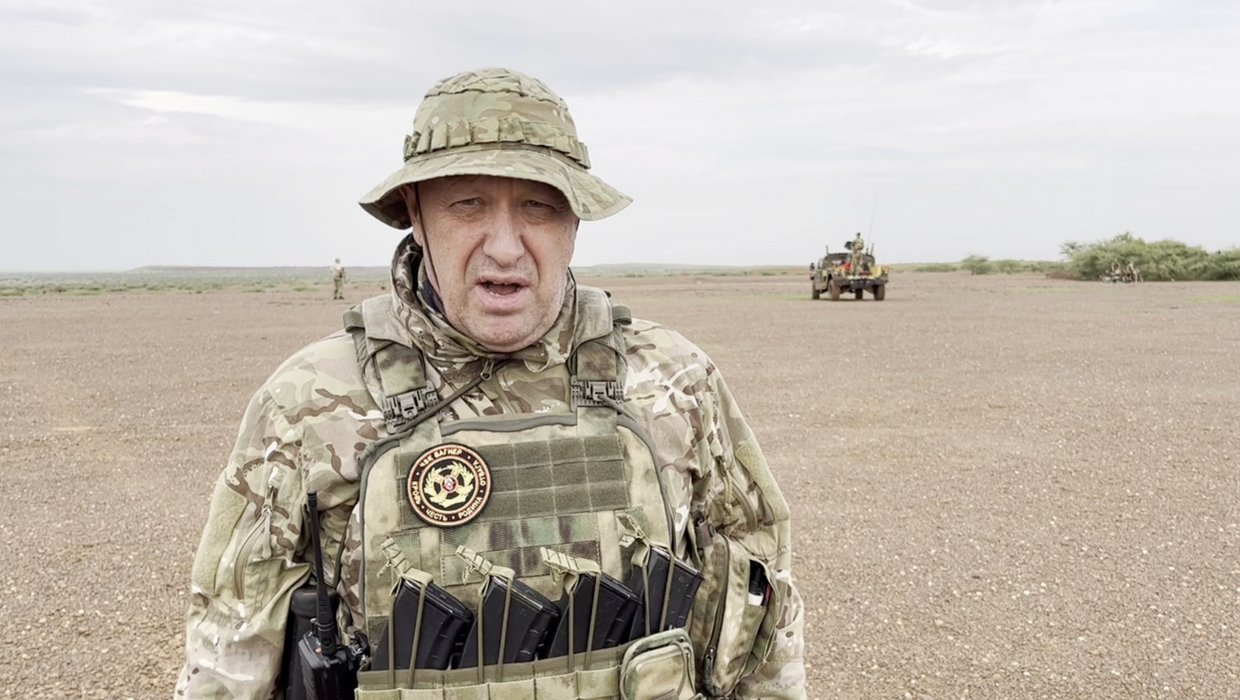Wagner Group chief and war criminal Yevgeny Prigozhin claimed that he was in Africa in a video shared on Aug. 21 by the "Razgruzka Vagnera" ("Unloading Wagner") Telegram channel linked to the mercenary group.
In the video, Prigozhin, dressed in full army gear, stands in front of a deserted piece of land that he claims is in Africa, with a handful of soldiers behind him.
"Wagner conducts reconnaissance and search operations. Makes Russia even greater on all continents, and Africa - even more free. Justice and happiness for African peoples. Nightmares for ISIS, Al-Qaida, and other gangs," he says in the video.
In addition to fighting alongside the Russian regular army in Ukraine before a short-lived mutiny against the Kremlin in June, the Wagner Group has been accused of committing human rights abuses, including torture and extrajudicial killings, in Mali alongside the Malian army fighting jihadists, as well as in Syria, Libya, the Central African Republic, Sudan, and Mozambique.
The U.K. government announced on July 20 a new wave of sanctions against 13 individuals and businesses connected to the Wagner Group's activities in Mali, Central African Republic, and Sudan.
One of the persons the U.K. has targeted is Ivan Maslov, head of the Wagner Group in Mali, for his role in the massacre of more than 500 people in Moura in March 2022.
Prigozhin's recorded video message follows information that over a thousand Wagner Group mercenaries have departed Belarus because they are unhappy with their pay, the Ukrainian military's National Resistance Center reported on Aug. 19.
Sources in Belarus told the Center that the number of Wagner fighters had fallen from 5,800 to 4,400.
According to the center's report, "lack of funding from Russia" is the cause. Dissatisfied with their earnings, Wagner mercenaries stationed in Belarus have signed contracts to fight in African nations or left for vacation without the intention of returning.
The Belarusian government established a partnership with the Wagner Group in July, when the private military company relocated to Belarus in the aftermath of Yevgeny Prigozhin's June rebellion.
Wagner members have since been training Belarusian soldiers on combat techniques.
Given the low payment for Wagner instructors, "most of them do not plan to stay in the country for a long time," the Center said.
While Wagner troops appear to have withdrawn from Ukraine, their presence in Belarus has increased regional tensions. Poland, Lithuania, and Latvia have threatened to close their borders to Belarus due to Wagner activity along the border.

The notorious Wagner mercenary force, once often called “Putin’s private army,” occupied two major regional capitals and began a march on Moscow on June 23 following a long-running conflict with the Defense Ministry, which had ordered the mercenaries to be integrated into the regular army by July 1.
Prigozhin turned his sights not only on his arch-rivals, Defense Minister Sergei Shoigu and head of the Russian General Staff Valerii Gerasimov, but, de facto, on the entire Russian regime, including dictator Vladimir Putin.
Prigozhin started the rebellion after claiming the Russian army had attacked the mercenaries.
Several thousand Wagner mercenaries took over Rostov-on-Don, a major city in southern Russia.
They marched all the way to the vicinity of Moscow, stopping just 200 kilometers south of the capital.
According to Russian media reports, the Wagner troops shot down several helicopters and one plane and killed more than 10 Russian soldiers, including pilots.
During most of the march, there was little resistance to the mercenaries, which prompted speculation that the police, the National Guard, and the army were reluctant to confront Wagner.
Eventually, Prigozhin concluded a deal with Putin late on June 24 and halted the mutiny, with Belarusian dictator Alexander Lukashenko as an intermediary.
The Russian authorities agreed not to prosecute Prigozhin and the mercenaries and let them move to Belarus.














